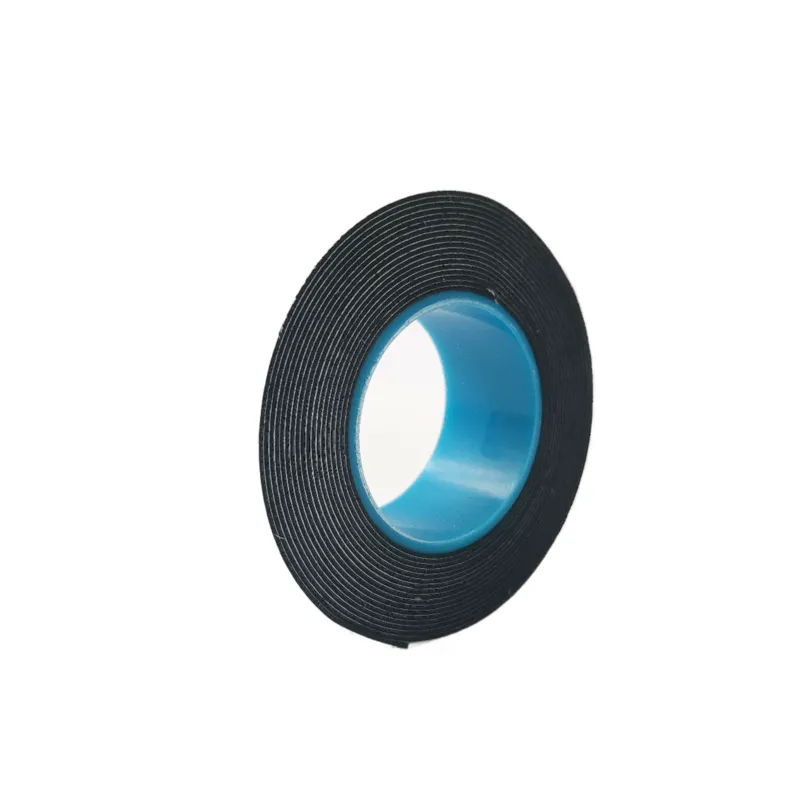The Role of PVC Electrical Tape Factories in Modern Industry
In today's increasingly complex industrial landscape, PVC electrical tape factories play a pivotal role in ensuring safety, efficiency, and reliability in electrical applications. PVC (polyvinyl chloride) electrical tape is widely used in various sectors, ranging from construction to automotive, due to its insulating properties and durability. This article explores the significance of PVC electrical tape factories, their operational processes, and the impact they have on modern industries.
Understanding PVC Electrical Tape
PVC electrical tape is a type of insulating tape made from a flexible and robust polyvinyl chloride material. It is designed to insulate electrical wires, provide protection against moisture, and withstand temperature fluctuations. Its versatility makes it suitable for both indoor and outdoor applications. The tape is usually coated with an adhesive that provides a strong bond to various surfaces, making it ideal for wiring harnesses, splicing, and electrical repairs.
The Manufacturing Process
The production of PVC electrical tape involves several critical steps, each contributing to the final product's quality and effectiveness.
1. Material Sourcing The first step in the manufacturing process is sourcing high-quality PVC resin, plasticizers, and additives. These materials are crucial for achieving the desired flexibility, adhesion, and thermal stability of the tape.
2. Mixing and Compounding Once the materials are sourced, they are mixed and compounded in specific ratios to create a uniform mixture. This mixture is often subjected to heating to enhance its properties.
3. Calendering Process The compounded mixture is then passed through a calendering machine, where it is flattened to the desired thickness. This process is vital as it determines the tape's insulation effectiveness and mechanical strength.
4. Cutting and Coating After calendering, the tape is coated with a layer of adhesive. The adhesive is applied uniformly to ensure consistent performance during application. The tape is then cut into rolls and packaged for distribution.
pvc electrical tape factory

5. Quality Control A rigorous quality control process follows the manufacturing steps to ensure that the tape meets industry standards. Tests for adhesion, flexibility, and thermal resistance are conducted to guarantee that each roll of tape is fit for its intended use.
Economic and Environmental Considerations
PVC electrical tape factories contribute significantly to the economy by providing jobs and supporting local businesses. They are often located near industrial hubs, facilitating easy access to raw materials and transportation networks.
However, like many manufacturing industries, PVC tape production has its environmental impact. Factories are increasingly adopting sustainable practices, such as recycling scrap materials and minimizing waste. Some manufacturers are exploring biodegradable alternatives to traditional PVC, aiming to reduce their carbon footprint and contribute to a more sustainable future.
Applications and Market Demand
The demand for PVC electrical tape is driven by its diverse applications. In the construction industry, it is crucial for electrical installations, ensuring safety and compliance with regulations. In automotive manufacturing, it is used for wiring and harnesses, helping to protect sensitive electrical components. The telecommunications sector also relies on PVC tape for insulating cables and connectors.
As industries worldwide continue to evolve, the demand for high-quality PVC electrical tape remains strong. With technological advancements leading to new applications and improved product specifications, PVC electrical tape factories are well-positioned for future growth.
Conclusion
In summary, PVC electrical tape factories are an essential component of modern industrial operations. By producing high-quality electrical tape, these factories not only enhance safety and efficiency in various applications but also support economic growth and innovation. As the demand for reliable electrical insulation continues to rise, the importance of PVC electrical tape production cannot be overstated. Investing in sustainable practices and embracing technological innovations will ensure that these factories remain relevant and contribute positively to both the economy and the environment in the years to come.
-
XIANGFAN Rubber Tape-Ultimate Solutions for All Your Insulation NeedsNewsJun.24,2025
-
XIANGFAN Rubber Tape-Protection for Industrial and Residential ApplicationsNewsJun.24,2025
-
XIANGFAN Rubber Tape: Superior Safety and Sealing for Demanding EnvironmentsNewsJun.24,2025
-
XIANGFAN Rubber Tape: Reliable Solutions for Every Electrical ChallengeNewsJun.24,2025
-
XIANGFAN Electrical & Industrial Tape: Powering Reliability Across IndustriesNewsJun.24,2025
-
XIANGFAN Electrical & Industrial Tape: Excellence in Every ApplicationNewsJun.24,2025
